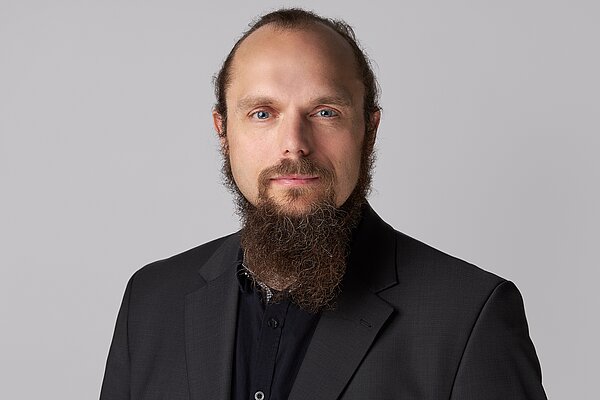Prof Hartmann will take over the Chair of Environmental Engineering from October 2025.
Editorial team: Congratulations on your appointment as Professor of Environmental Engineering at the Faculty of Engineering at HTWK Leipzig. Can you briefly explain the areas of responsibility associated with your professorship?
Prof Hartmann: I am very pleased that I can now take over the professorship of Environmental Engineering at HTWK Leipzig on a full-time basis!
Environmental engineering deals with a broad and interdisciplinary range of topics relating to the prevention, minimisation and elimination as well as the recording and measurement of harmful and climate-relevant effects of technical processes, products and applications in the private and commercial environment. The environmental compartments of water, soil and air are considered comprehensively. The aim is for trained students from HTWK Leipzig to contribute as experts to minimising human impact on the environment so that health effects can be avoided. However, valuable natural areas and biodiversity must also be preserved for future generations.
The following courses are offered as part of the Environmental Engineering professorship for the Energy, Building and Environmental Engineering degree programmes (Bachelor's and Master's degree programmes):
Natural science and engineering fundamentals:
- Ecology
- Basic operations of mechanical and thermal process engineering
- Chemical reaction engineering, bioreaction engineering
- Environmental measurement technology
- Environmental engineering applications:
- Wastewater treatment
- Waste gas and exhaust air treatment
- Waste management
- Recycling technology
- Contaminated sites/soil remediation
Editorial team: How did you decide to specialise in this area of research and teaching? Did you already know what path you wanted to take before you started your studies?
Prof Hartmann : I was already involved in technical and environmental topics as a child and teenager and can still remember very well sitting at the kitchen table with my father as a small child and soldering together electrical kits. I also observed local wildlife and drew birds of prey in particular. I always wanted to be a craftsman, so I completed an apprenticeship as an electrical engineer in a small company in Lower Saxony. This made me realise that I wanted to gain a deeper insight into the physical and chemical processes involved in energy technology and, after gaining a vocational diploma, I chose to study energy technology at HTWK Leipzig. My specialisation in environmental engineering was then a logical decision, because my practical experience made me realise that technology only makes sense if ecological aspects are given equal consideration to economic efficiency. Air pollution control was a particular concern of mine, so after graduating with a degree in engineering, I started a doctorate on catalytic exhaust gas purification in the microwave field at the University of Leipzig and successfully completed it in 2007. I have always remained loyal to HTWK Leipzig, not least because of the excellent collaboration with my mentor and predecessor Prof Joachim Schenk. I was able to work on research projects in his working group for two years after my doctorate and then took up a position as a scientist at the DBFZ working on the combustion of biomass. The topic of air pollution control is also an important field of work in bioenergy, which is why I was able to make intensive use of the knowledge I gained on air pollution control at the DBFZ. Catalytic processes for exhaust gas purification are particularly close to my heart.
An academic career with the aim of a professorship in environmental technology was a possible career goal for me, although of course the framework conditions also have to be more or less coincidentally right in order to be able to take up a professorship at HTWK Leipzig in precisely this subject area. I am therefore very happy that I can now take this important step.
Editorial team: What skills and interests do you think students who decide to study Energy, Building and Environmental Engineering should have?
Prof Hartmann: An interest in environmentally relevant problems and an understanding of technology and science are certainly very advantageous. It is also very helpful to have practical experience from school and vocational training or knowledge of ecological issues from your private life.
Editorial team: What new projects would you like to realise in the future?
Prof Hartmann : The environmentally friendly production of materials from residual and waste materials is an important future field of activity for me in which I would like to become more involved. The recycling of chemical substances such as catalysts for various applications is also very relevant to me as a future research and development topic. The main goal should be to avoid the over-exploitation of the earth's scarce resources as far as possible and I would like to make a small contribution to this with my research at HTWK Leipzig.
